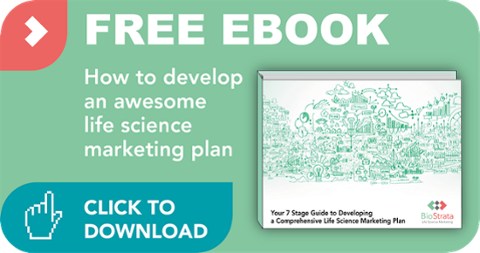Like anyone that’s had any length of involvement with the life science industry, we love data. The great thing about the internet is that there’s such a vast amount of it out there – a lot of it entirely for free. The downside to this is that there’s a mire of low quality (or just plain incorrect) data out there as well. When it comes to conducting market research, you need to be able to separate fact from fiction. Fortunately, we have some pointers to direct you towards the good stuff.

1. Expert life science consultants
Sometimes it’s worth seeing what the experts have to say. People like Frost & Sullivan for example, have some very high-end research analysts that have already evaluated the global markets and generated in-depth reports. While the majority of these reports are behind substantially sized paywalls, it is common practice to include a fairly detailed executive summary for free. These can be perfect for collating lots of data on different topics very rapidly.
2. Market research databases
Places like MarketResearch.com house a broad spectrum of reports on a database, and include content providers such as Kalorama Information, TechNavio, Infiniti Research Ltd, QY Research Group and Hoovers Research to name a few. Like the reports from specific consultancy firms, these can be behind paywalls, but usually include a summary that is available to anyone.
3. Life science and other related blogs
Plenty of experts like to write about life science markets, the changing trends and news in general in a much more informal manner. Information from high profile groups like Forbes, Deloitte or FiercePharma is always of a very high quality. The great thing about these blogs and news sites is not only are they free, but they’re current. However, don't limit yourself to just a few sources. We recommend setting up Google Alerts (or similar tools) to monitor the web for key terms relevant to your business, technologies and customers.
4. Additional learning resources
Perhaps you’ve already found your juicy titbit of information, but you need to understand the subject in more depth. A great number of companies now provide webinars on specialised topics that are free for you to listen to. If you have trouble tracking down a webinar, quite often the presentation ends up on SlideShare, the world’s largest professional content sharing community. Between webinars and slides, you can get up to speed on a new or challenging topic in no time.
Feeding this data into a fully-formed marketing plan
There are a lot more resources at your disposal than just this little selection. To learn more about market research and how this can help you operate more effectively in your marketing landscape, download our free ebook, ‘Your 7 Stage Guide to Developing an Effective Life Science Marketing & Communications Plan’.





